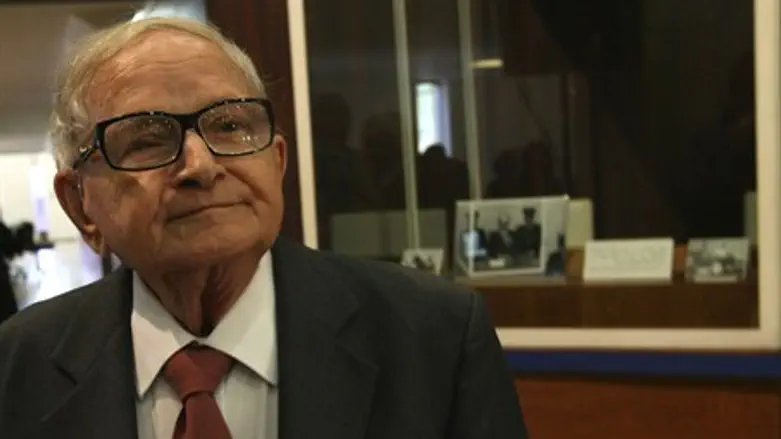
Former minister Rafi Eitan, the former handler of Jonathan Pollard, believes that this time, Israeli efforts to win Pollard’s freedom may yield results.
Pollard is serving a life sentence in prison for sharing classified United States intelligence information with Israel in the 1980s. Israeli activists have sought his freedom for many years. They have increasingly gained support for their cause, due in part to Pollard’s failing health and revelations about U.S. spying on its foreign allies.
Eitan said he believes that Pollard will be freed within two years. “He’s going to be released in one year and ten months either way,” he told Arutz Sheva.
His prediction was based on an American law that could allow Pollard to be pardoned in 2015, once 30 years have passed since he entered prison. Pollard could apply for a pardon under the law, and his request is likely to be approved, Eitan said.
While American authorities could reject his request, he said, “if you look at the past few decades, it doesn’t happen.”
“There’s no reason he shouldn’t be released,” Eitan continued. “I think that in this case Obama – with the right pressure, maybe in exchange for something suitable – I think this time there’s a good chance he’ll be freed.”
The former minister clarified that his comments about “the right pressure” apply to the situation today, not only in 2015. “I think he’ll go free now. Now, with the pressure and the negotiations with the Palestinians and what happened with Snowden, there is a good chance.”
Regarding fears that American authorities would keep Pollard in prison as a deterrent to others, Eitan said that while the severity of Pollard’s sentence does appear to have been influenced by a desire to make an example of him, “in the time since then, new people have replaced the old in American intelligence, and the new ones don’t have that sense of ‘making an example.’”
When asked what would constitute “the right pressure,” Eitan said Israelis should openly seek Pollard’s freedom. “Today we need to talk about it openly, in public, to say what we want and to deal with it directly.”
But Eitan's optimistic prognosis notwithstanding, legal experts have warned that the prospect of an imminent release for Jonathan Pollard, even by 2015, is relatively bleak. They note that until now his legal team has been prevented from even viewing the confidential documents upon which the prosecution has based its case, making it all but impossible for them to mount a legal defense against any potential petitions to keep their client behind bars. This, despite his attorney's possessing the necessary security clearances to view the documents in question.
Eitan has expressed hope for Pollard’s imminent release on previous occasions, including prior to the 2012 presidential elections in the U.S. Eitan has alleged that U.S. officials promised Israel that Pollard would go free within a decade, but backed out of the agreement.
Eitan wrote a letter to U.S. President Barack Obama with a personal request to free Pollard. When asked if there was a response, he said he had received no reply, “not even ‘we got your letter, thank you.’”
He said he was not insulted by the lack of reply, explaining, “I’m used to it.”
